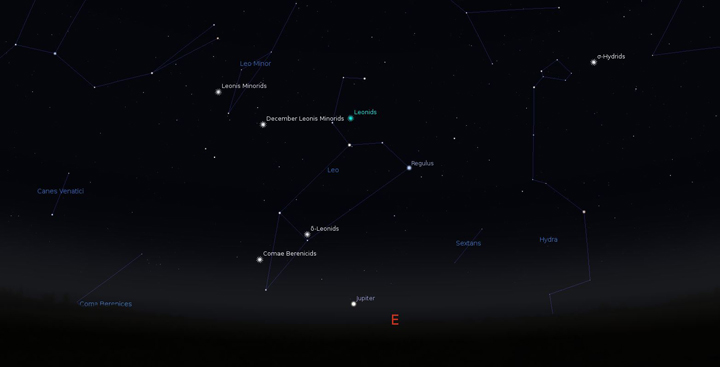After experiencing a rare, impressive Taurid meteor shower this month, we’re now heading for another shower: the Leonids.

The Leonid meteor shower is set to peak Tuesday night. While not the most impressive of meteor showers, it’s still considered one of the major showers of the year.
READ MORE: WATCH: Meteor seen breaking up over Bangkok, Thailand — during the day
The Leonid meteor shower produces about 15 meteors an hour at its peak, but the meteors can be bright and colourful. That’s because they’re fast, moving through the atmosphere at about 71 kilometres a second. So you might catch a good fireball.

Get breaking National news
Meteor showers are given their names based on the constellation from which the meteors seem to originate (called the radiant). In this case, the radiant is in the constellation Leo.
If you’re hoping to catch a few meteors, Leo rises after 11 p.m., so you’re going to have to stay up late (or get up really early) for the best chance. That’s not to say you won’t be able to see any earlier in the night, however: The Leonids also produce Earth-grazers, meteors that are low on the horizon and have long, colourful tails.
So if you have clear skies, after dark, bundle up, head to as dark a location as you can and just look toward the east (and up!).



Comments
Want to discuss? Please read our Commenting Policy first.